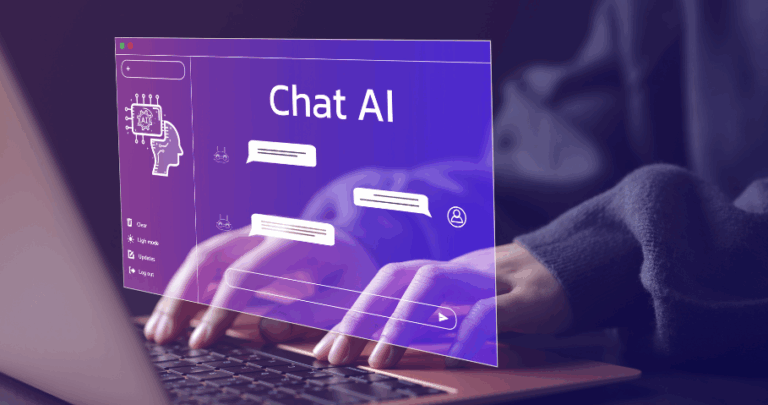
Will Williamson, director of JDR Group, a digital marketing agency in Derby offers marketing advice to SMEs discussing how the way in which people are finding companies and organisations online is changing and what they should do about it.
Just when everybody got used to SEO and the importance of getting your brand to the top of Google, it’s all change in the world of website searches, thanks to – you’ve guessed it – AI.
We had already seen a change in this area, with younger internet users preferring to look for brands and products by using social media sites such as TikTok, rather than a now-traditional Google search.
It’s a growing trend, but even this is being eclipsed by another new innovation – using an AI chat bot, such as ChatGPT or Google’s Gemini, to answer queries or find out information like the best washing machine or a good local restaurant.
The reason is that AI makes finding information online feel less like flicking through an old-school telephone directory and more like a nuanced conversation: its question-and-answer function, combined with the lightning speed with which it interprets vast volumes of data, means users can get the information they are looking for without having to even visit a website.
This, clearly, is great news for anyone who needs to find anything, and it’s excellent news for Microsoft. Because ChatGPT can access information via Bing, and Microsoft owns Bing – which has almost become an irrelevance when compared to the power and reach of its great rival, Google.
Now, with ChatGPT changing how people access information, we’re seeing a real shift away from traditional search engines like Google.
Yes, it still has some way to go before it overhauls Google, which is used for eight billion searches a day. But there is no doubt where the direction of travel is – towards question-and-answer searches without a long list of websites for users to visit for themselves.
And it’s this which is the game-changer for companies, who for years have invested in making sure their websites appear in Google searches and now have to make sure that their name will appear in whatever conversation ChatGPT is having.
Thankfully, there are some techniques which they can use, which are grouped under the general title Answer Engine Optimisation (AEO).
This is a progression from Search Engine Optimisation, and many of the techniques are similar. And, just like SEO, the most important thing a company looking to appear on ChatGPT can do is optimise their website by ensuring that the website has strong, clear and well-structured content that uses relevant keywords – which are still important, naturally.
And, of course, companies should look at getting as optimised as possible in Bing, since it is the driver behind much of the data ChatGPT pulls from when connected to the web. They can do this by creating an account with Bing Webmaster Tools.
The next step is more technical and involves implementing schema markup – schema being the code which is added to websites and is designed to help search engines better understand the content on its pages.
Technical schema should be used for articles, product pages and other content, all of which will enable AI to understand and index your information. The better and more relevant the information, the better.
The next hint is probably the area where AEO differs from SEO the most, because, unlike in SEO results – which list individual websites, with the most relevant and influential at the top – answer engines look across a whole host of sites as part of their research and bring together the results as part of a complete answer.
The more mentions there are of a company, detailing different aspects of its operations, people, products and location, the stronger the signal to ChatGPT that it is a reputable, multi-faceted, genuine and authentic brand – and, as such, a safe bet for its recommendations.
This means that companies should not focus all their efforts on their websites but should instead create diverse content across a number of platforms.
Yes, for all those companies which have shied away from setting up their own YouTube account, or going onto social media like LinkedIn or Instagram, or have avoided doing any PR in order to get media coverage – it’s time to take the plunge.
Unlike with SEO, everything you do on these platforms is relevant. However, like SEO, this is only effective if the content you produce mirrors the keywords and topics that you want to get referenced by in AI – and want to be found for.
So, in an ideal world, from a marketing perspective, you would already be creating videos for YouTube, posting regularly on social media, and creating video content across platforms – all aligned to the kinds of topics and phrases that people would search for anyway.
If so, then carry on. If not, then get moving!
But also, do consider PR. It has been the case for a while in digital marketing that PR should mean link-building – getting backlinks from news sites to your website in order to build its online reputation – but AEO means it’s the content of the article that plays the biggest role.
By getting your company’s name mentioned in a news article, it shows ChatGPT that your brand is being talked about and is expert and influential in your industry. It also gives a mention for your values and your staff – which are two more aspects that AI-driven search is looking for.
And because AI tools understand the context in which your brand is mentioned, it gives them a deeper understanding of who you are and what you stand for.
In today’s consumer landscape, your brand values and back story are important. Customers want to buy from brands who share their values and do business reputably – not just who offer the lowest price.
It’s also important at this point to mention customer feedback and reviews. ChatGPT wants to reassure its users that the company it recommends has been recommended by people on the internet – and so it will be searching for social proof and third-party endorsement.
A company with a strong reputation on review sites and Google Business reviews is, therefore, more likely to be noticed by AI – meaning they are more likely to be mentioned when ChatGPT returns the answer it hopes its user is looking for.

